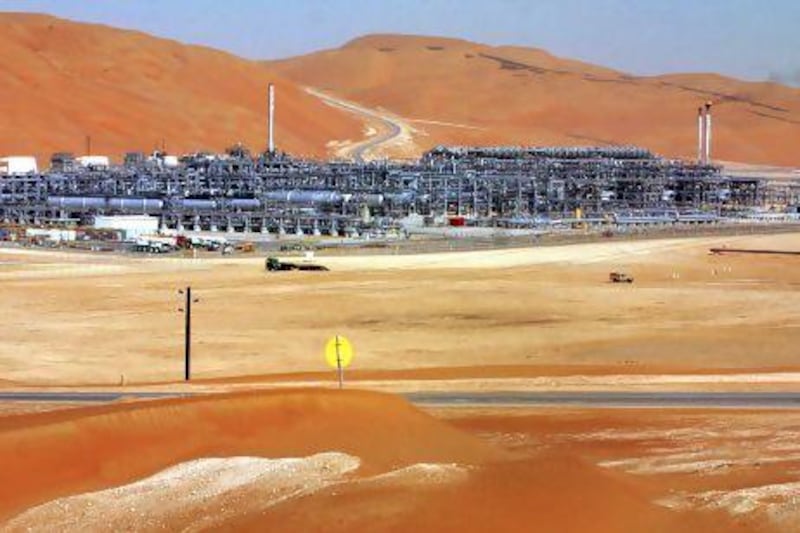Even as crude prices recovered this week to again climb above US$100 a barrel, relieving oil producers after a sudden decline earlier this week, analysts say Opec still has reason to worry.
At next month's meeting, ministers will weigh the current output target, which has remained essentially unchanged since 2008, when producers acted swiftly to halt falling prices.
The quota has been notched up to include Iraq, but with a lack of individual quotas, Saudi Arabia pumping as it sees fit, and rebuilding nations such as Iraq and Libya pumping as much as they can, for now the target remains just that.
But ministers may want to think about curbing production to within the official 30 million barrels per day (bpd) as prices remain near or below $100 - the preface to what some say is a market correction coming in the second half of this year.
"The very steep fall, which was much more extended than people had thought, will definitely give Opec members some cause for reflection, and there might be some debate as to whether they should reimpose quotas," said Christopher Bellew, a senior futures broker at Jefferies Bache.
"The Opec quota system has largely been ignored and the Saudis have tended to act rather successfully as a swing producer. But the Saudis will be reluctant to cut back output on their own."
Waiting too long could push the matter beyond the reach of Opec, which considers itself the equivalent of a global central bank for oil.
If spot crude prices continue to fall, they will trail those of futures contracts, creating what traders call a contango position and encouraging the accumulation of crude stocks, wrote Ali Aissaoui, a senior consultant at Arab Petroleum Investments Corporation. That would make it harder for Opec to stabilise oil prices at the levels the nations as a group need to break even on their annual budgets - $99, according to his latest estimates.
"Today's market with this recent economic development, weak market sentiment, it's really putting prices under pressure," said Sultan Al Mehairi, the director of marketing and refining at Abu Dhabi National Oil Company.
But he added: "Opec is not that much concerned about today's prices. What I think is their concern is the market fundamentals. It's not a matter of, Brent is going below $90 or below $100, that they will defend the $100 level. That is not the objective of Opec. They look longer term."





